“When every Allegheny County driver saw their vehicle registration fee rise by $5 two years ago, they expected that to result in safer roads and bridges. But we have seen cost overruns that could well have been prevented through due diligence by the County burn through this amount and more.”
MEDIA CONTACT: Lou Takacs, Communications Director
412-350-4157, Louis.Takacs@AlleghenyCounty.US
(Pittsburgh) November 27, 2018 Allegheny County must tighten standards for firms designing and carrying out Department of Public Works projects to prevent construction cost overruns which added up to more than $6 million across a dozen projects examined by auditors. The added costs on these projects alone exceeded the annual proceeds of the County’s recently instituted $5 vehicle registration fee, which is dedicated to road and bridge projects, County Controller Chelsa Wagner said.
While project designs and bids should include all necessary tasks to complete a project, an additional 10 percent cost due to change orders on a construction project is considered industry standard, according to Department of Public Works management. But overruns on the dozen projects examined averaged almost double this benchmark.
“Cost overruns resulting from omitting necessary tasks from design plans and bids not only sap County resources that could go to other projects, they open the door to unscrupulous practices such as ‘bid rigging,’ which drive costs up even further,” Wagner said. “When cost overruns become commonplace, contractors may see the opportunity to secure contracts by bidding below their actual anticipated cost. This is why close oversight of design work to prevent the necessity of excessive change orders is essential.”
Wagner’s audit recommended building limits on added costs due to design omissions into engineering contracts, and conducting thorough internal reviews of design specifications to ensure they are complete before issuing requests for construction bids. She said firms that repeatedly submit incomplete designs should be restricted from County engineering work.
Beyond omissions from project designs, cost overruns on two projects resulted from the failure to secure required environmental permits prior to beginning construction, and another project incurred more than $500,000 in additional costs due to necessary relocations of utility lines not included in initial design.
A lack of dedicated project management software that tracks all project information has contributed to a lack of oversight, Wagner said. Some contractors perform work on multiple projects under the same contract, making it difficult to determine the total cost of a given project, and some change orders to the reviewed projects could not be provided to auditors.
This software deficiency may also be resulting in the failure of the County to recoup increased costs from contractors. The authorization for a change order that increased the cost of one project by nearly 50 percent stated that the County should seek reimbursement for the increased cost from the design firm, but no reimbursement was ever sought or received.
“My own office and so many other areas of government have utilized new technology to improve record-keeping and access to information for both those providing oversight and the public. When we are spending millions on construction projects that impact the daily lives and safety of County residents, putting information on the requirements of these projects and their costs at the fingertips of those who monitor this work is essential,” Wagner said.
Public Works maintains more than 780 miles of roads and more than 550 bridges around the County, and spent more than $60 million to build and repair County-owned infrastructure in 2017. To help meet these needs, an Infrastructure Support Fund derived from a $5 surcharge on vehicle registrations in the County took effect in 2016 and raised nearly $4.8 million in 2017, $1.2 million less than the cost overruns on the dozen projects examined by auditors.
“Quality roads and bridges are essential to public safety and economic growth, but state and federal funding for these priorities has not kept up with needs. When every Allegheny County driver saw their vehicle registration fee rise by $5 two years ago, they expected that to result in safer roads and bridges. But we have seen cost overruns that could well have been prevented through due diligence by the County burn through this amount and more,” Wagner said. “Greater safeguards simply must be put in place to ensure that every dollar available for investment in this vital priority is spent wisely.”


